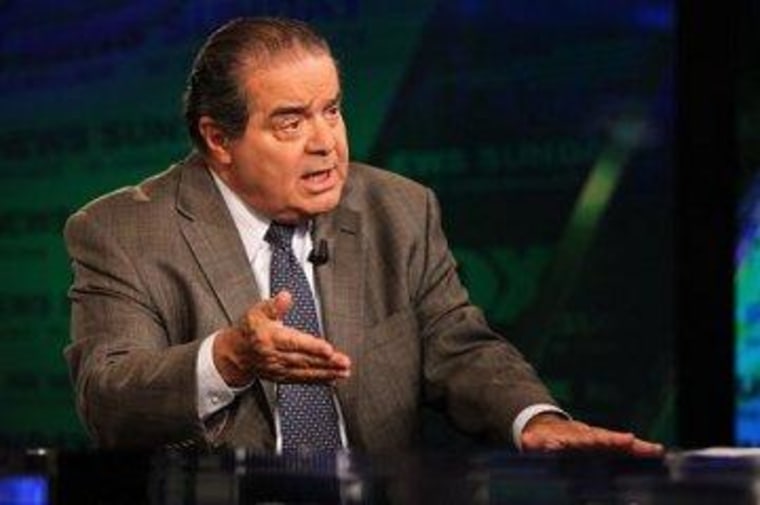After the Supreme Court's deeply problematic ruling on the Voting Rights Act last month, I'd hoped Justice Antonin Scalia would tone down his "originalist" rhetoric for a while. After all, in Shelby, the court majority just made up a rationale not found in the Constitution to reach a policy outcome the Republican-appointed justices preferred.
But humility has never been one of Scalia's strengths. For example, the jurist complained about judicial "activism" at an event in Colorado over the weekend -- his talk was titled, "Mullahs of the West: Judges as Moral Arbiters" -- and according to the Aspen Times, Scalia's remarks were about as subtle as the name of his session.
Scalia opened his talk with a reference to the Holocaust, which happened to occur in a society that was, at the time, "the most advanced country in the world." One of the many mistakes that Germany made in the 1930s was that judges began to interpret the law in ways that reflected "the spirit of the age." When judges accept this sort of moral authority, as Scalia claims they're doing now in the U.S., they get themselves and society into trouble.
Now, in fairness, I should point out that there's some obvious paraphrasing in that paragraph, and few direct quotes. I'd like to see a full transcript and/or a video before drawing firm conclusions.
But if the Supreme Court justice actually suggested an American legal philosophy he disagrees with led to the Holocaust, we appear to be reaching what Josh Marshall called "Peak Scalia."
A year ago, following some of Scalia's antics, a constitutional law professor at UCLA said the conservative jurist "has finally jumped the shark." And while that seems reasonable at the time, Scalia somehow manages to keep pushing the envelope.
* Update: Elizabeth Wydra at the Constitutional Accountability Center had a good take on this that's worth checking out: "With Invocation Of Nazi Germany, Scalia Loses Debate Over Constitution."
* Other Update: I'd originally included a quote from an NPR report about the Voting Rights Act ruling, but NPR has since run a correction to its segment, saying the quote in question was from a scholar referring to a different case. To avoid confusion, I've removed it. (Thanks to reader D.P. for letting me know.)
